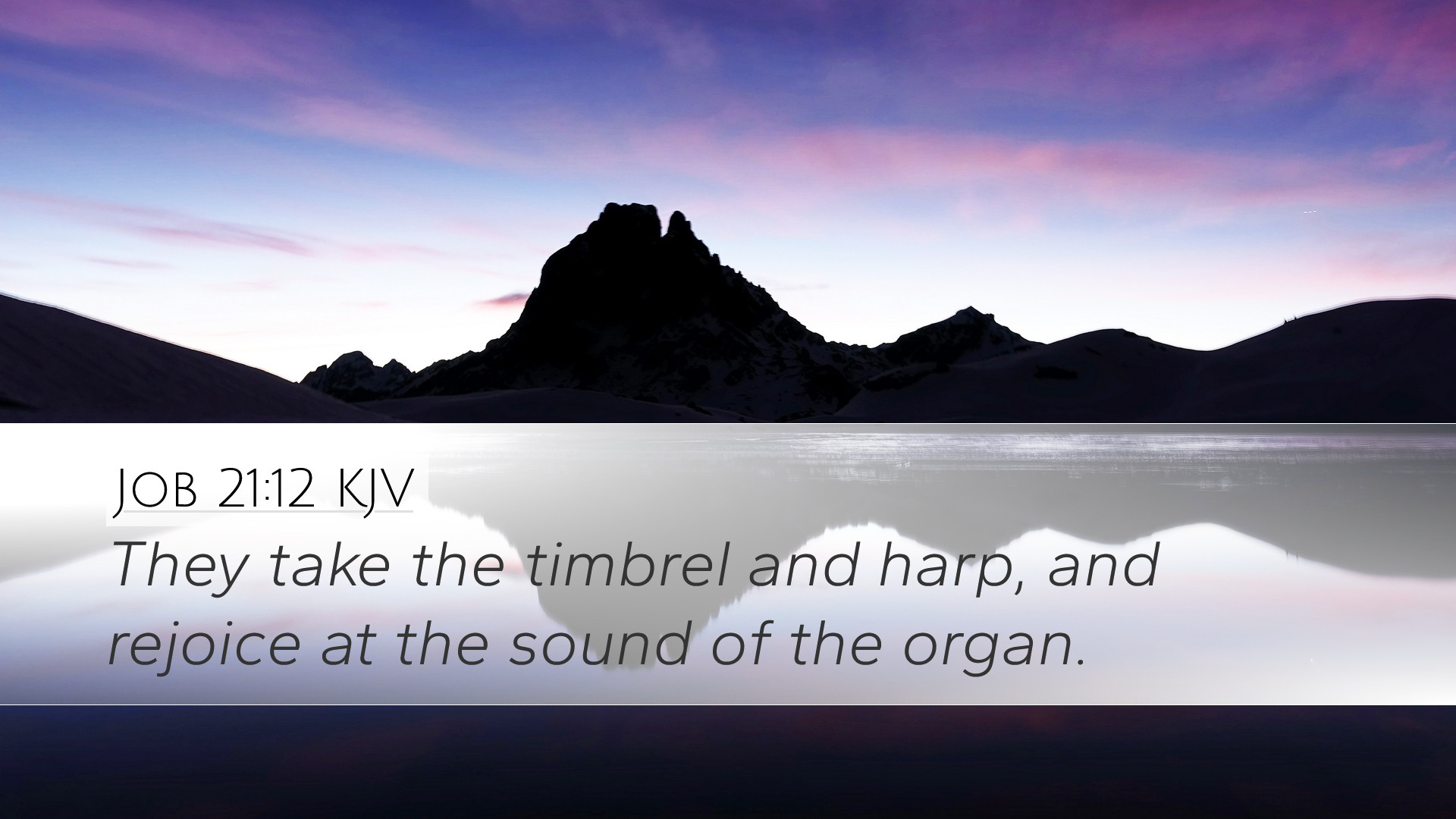Commentary on Job 21:12
Job 21:12 states, "They take the timbrel and harp, and rejoice at the sound of the organ." This verse encapsulates the juxtaposition of joy and suffering, illustrating a profound theological and existential inquiry into the prosperity of the wicked versus the plight of the righteous.
Contextual Background
In the broader narrative of the Book of Job, this chapter represents Job's defense against the assertions of his friends who claim that suffering is a direct result of personal sin. Job argues for the observation of the wicked who seem to thrive unpunished, pointing to a deeper understanding of divine justice.
Insights from Matthew Henry
Matthew Henry emphasizes the disparity in the life experience of the wicked in contrast to the righteous. He notes:
- The Illusion of Happiness: Henry points out how the wicked seem to enjoy life, celebrating with music and feasting, as depicted in this verse. Their joy, however, is transient and does not reflect true happiness found in righteousness.
- Their Condition: He adds that while they partake in such joys, their end is perilous, leading to a state of eternal separation from God. Henry argues that earthly pleasures do not equate to spiritual wellbeing.
Insights from Albert Barnes
Albert Barnes provides a detailed analysis of the implications of this verse regarding the fate of the wicked:
- Prosperity of the Wicked: Barnes illustrates that the prosperity of the wicked is often observable. Their lives are marked by apparent joy and success which, on the surface, contradicts the common theological wisdom of retributive justice.
- Joy amidst Judgment: He suggests that, in this earthly realm, the wicked may indulge in moments of celebration, yet they are also under the looming threat of divine judgment. This complex tension invites deeper reflection on God’s ultimate justice.
- A Call to Perspective: Barnes encourages readers to adopt a long-term perspective, affirming that the fleeting joys of the wicked will not withstand the test of divine scrutiny.
Insights from Adam Clarke
Adam Clarke's commentary delves deeply into the philosophical and theological ramifications surrounding this verse:
- The Nature of True Joy: Clarke posits that true joy is rooted in righteousness and a relationship with God, stating that external celebrations of the wicked cannot illuminate their spiritual bankruptcy.
- The Timbral Representation: The use of musical instruments such as the timbrel and harp symbolize external joy; however, Clarke warns against conflating external music with internal peace. The wicked may appear joyful, but their hearts remain unfulfilled.
- Final Retribution: He emphasizes that while the wicked may celebrate temporarily, a final retribution awaits them that signifies God’s ultimate justice. This is a call for believers to stay faithful, relying on God's promises rather than visible circumstances.
Theological Implications
Job 21:12 speaks to several key theological themes relevant to pastoral practice and scholarly discourse:
- The Problem of Evil: The disparity between the observed prosperity of the wicked and the suffering of the righteous challenges conventional wisdom about divine justice.
- Nature of Suffering: This verse invites reflection on the nature of suffering and the transient nature of earthly joys, encouraging believers to seek deeper, more substantial forms of fulfillment that arise from a relationship with God.
- Hope and Perseverance: For clergy and theologians, this verse underscores the importance of hope and perseverance in faith amidst apparent injustice, affirming that true joy is eternal and found in righteousness.
Conclusion
In conclusion, Job 21:12 serves as a multifaceted touchstone for discussions surrounding suffering, justice, and the nature of true happiness in the Biblical worldview. Insights from seminal commentators such as Matthew Henry, Albert Barnes, and Adam Clarke allow for a richer understanding of this profound verse. For pastors, students, theologians, and scholars, this verse encourages an exploration of the complexities of faith amidst life's challenges, inviting a deeper engagement with the realities of human experience in light of divine truth.


